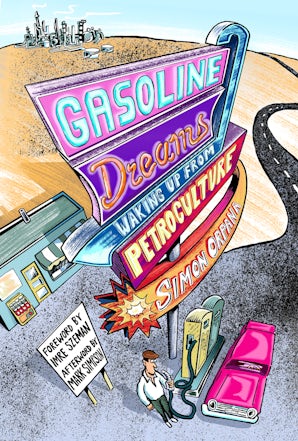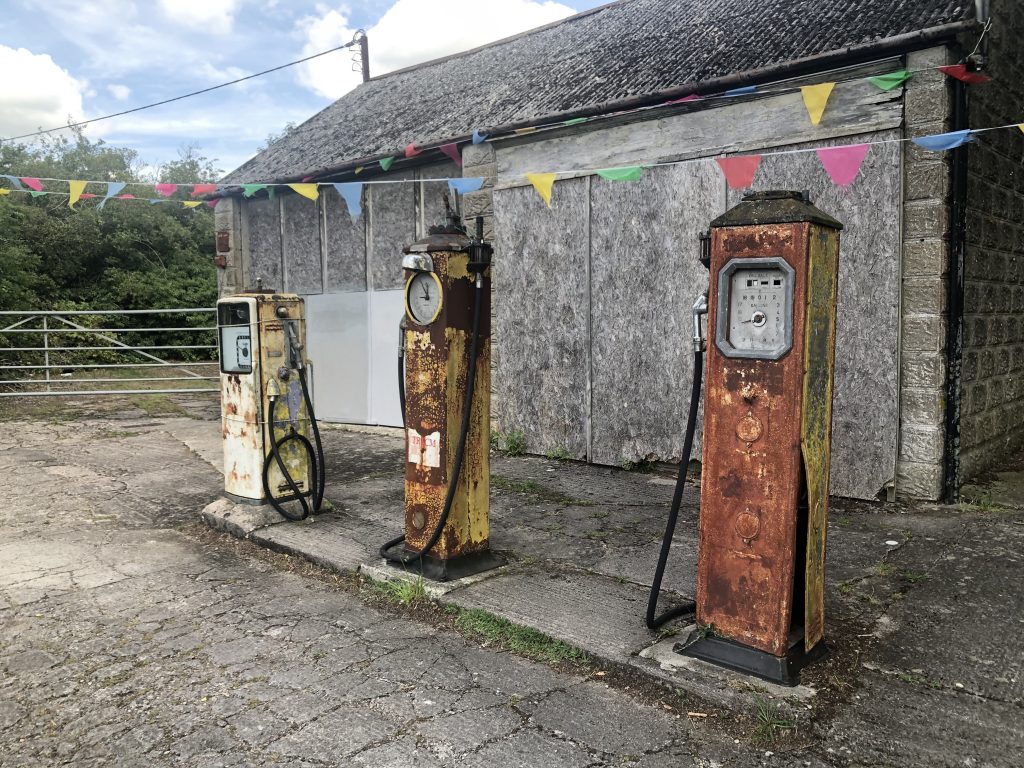EN963 Petrofiction: Studies in World Literature




Professor Graeme Macdonald | g.macdonald@warwick.ac.uk | Office Hours: Tuesday 10-11; Wednesday 11-12 or contact by email | FAB5.52
Tuesdays Term 2, 11-1 | Oculus Building OCO.05
"Oil is our God…we all worship Petroleum", A Crude Awakening
"We live in a petrol world." Stephanie Lemenager
This module studies the world literature of energy and natural resources, a critical category in the conjoined fields of the Energy and Environmental Humanities. In 2023/24, it will study Petroculture: including a range of literary and cultural works about that most combustible of planetary resources: oil. Our lives are saturated in oil – the most significant resource of the post-war capitalist world system. It is everywhere, especially in those places where it often appears abstract, scarce, or unseen. Oil and its myriad refined products determines how and where we live, move, work and play; what we eat, wear, consume. It is heavily invested in the shaping of our political and physical landscapes. To think about oil is not solely to think about automobiles or derricks or spectacular spills or barrel prices. The computer or the phone (or even the paper!) on which you are reading this blurb could not be made – or brought to you – without this substance. Oil’s universality makes it as controversial as it is ubiquitous in its apparent vitality and necessity as much as its toxicity. Energy, then, is as social a phenomenon as it is technological or a matter for engineering. Modern culture is a Hydrocarbon culture and recent scholarship has begun to engage with it as such, finding that oil, fossil fuels and other energy forms are deeply embedded in modern literature, art and culture.
The module will study long and short fiction (from naturalism to speculative fiction) from around the world. We also cover theatre, cinema, documentary, artworks and photography, with oil at its core. We interpret this within the wider rubric of ‘petroculture’, revealing international patterns in petroleum's cultural forms and social content. Connecting petrofiction's themes and aesthetic expressions confirm the effectiveness of a recently reconfigured world-literature as method and resource to map and critique ways in which the world’s resources are unevenly produced, extracted, refined and exploited on a global-local scale. You will see how petrofiction reveals vulnerable populations around the globe subject to oil imperialism, dispossession, environmental degradation. We will fashion an ecocritical frame as we proceed, realising how petrotexts register oil’s relations with climate breakdown, ecological crisis, democratic stress, war, urbanisation, short-lived economic booms, and campaigns for environmental justice. In tracking cultural and political responses to oil production and use throughout the 'Anthropocene' epoch, the course will also maintain a focus on speculative forms of energy futures – and demonstrate why fiction offers a novel way to think about culture after oil.
Primary Texts for 2023/24
Upton Sinclair, Oil! USA, 1927
John McGrath, The Cheviot, the Stag and the Black, Black Oil Scotland, 1973
Ken Saro-Wiwa, Selections from stories and essays, A Forest of Flowers Nigeria, 1985
Abdelrahman Munif, Cities of Salt (vol 1.) Saudi Arabia, 1985
Nawal El-Saadawi, Love in the Kingdom of Oil Egypt, 2001
George Miller, Mad Max: Fury Road 2015
Cormac McCarthy, The Road USA 2006
Oil Shorts: Selection of Short Stories (handout provided): China Miéville, Simon Orpana, Ghassan Kanafani, Sheena Wilson, Deepak Unnikishnan, Stephen King, Brian Aldiss, Tim Gatreaux, Joanna Kavenna, Alain Mabanckou, Robin Yassim-Kassab, Mohammed Hasan Alwan and Rose Tremain. See also: https://www.theguardian.com/books/series/oil-stories

We will also watch some movies and documentaries:
Mad Max: Fury Road (dir. George Miller, Australia/USA, 2015)
There Will Be Blood (dir. Paul Thomas Anderson, USA, 2007)
Lessons From Darkness, (Germany/Kuwait, dir. Werner Herzog, 1992)
A Crude Awakening: The Oil Crash (Ray McCormack, Switzerland, 2006)
Petropolis, (dir. Peter Mettler, Canada, 2009, https://www.petermettler.com/petropolis
Core Syllabus
Each year, the convenor will compile a syllabus of nine two-hour sessions designed to provide an introduction to the world literature methodology and subsequent coverage of specific texts. The course has a generic topic to allow for a specific resource topic or a mixture to be taught each year. The sessions for ‘oil’ are listed below. These sessions are open to all postgraduate students in the faculty whether auditing or taking the course as part of their degree.
Weeks One and Two: Introduction to Petroculture, Petrofiction and The Energy Humanities: selections from various critical and theoretical texts (see Syllabus page). We will also watch and discuss Peter Mettler's Petropolis in class.
Week Three: ‘Drainage!’ American Naturalism, American Oil: Upton Sinclair, Oil!, USA, 1927
Week Four: ‘It’s (Not and Never Was) Scotland’s Oil!’ Oil, Land, Commons and Petro-neoliberalism in the UK: John McGrath, The Cheviot, the Stag and the Black, Black Oil, Scotland, 1972.
Week Five: Shell Shocks and Ogoni Resistance: Nigerian Oil and Ken Saro-Wiwa, Selections from stories and essays, A Forest of Flowers, Nigeria, 1985
Week Six: Film/Documentary Showing and Discussion (3-4 hrs): Mad Max: Fury Road (dir. George Miller, Australia/USA, 2015); Lessons From Darkness (Werner Herzog, Germany/Kuwait, 1992)
Week Seven: "Oil is our desert God" - Abdelrahman Munif, Cities of Salt (vol 1.), Saudi Arabia, 1985
Week Eight: Women in the Oilfields: Nawal El-Saadawi, Love in the Kingdom of Oil, Egypt, 2001
Week Nine: From Peak to Post-peak: Energy decline in Cormac McCarthy's The Road, 2006
Week Ten: Various Short Stories: Stephen King, China Miéville, Rose Tremain, Alain Mabanckou, Joanna Kavenna, Tim Gatreaux, Mohammed Hasan Alwan and others (supplied by tutor).
A subject-specific bibliography relevant to the theme and chosen primary text is provided on the detailed Syllabus page. General books to be held on reserve in the library are:
Upton Sinclair, Oil (USA, 1927)
John McGrath, The Cheviot, the Stag and the Black, Black Oil (Scotland, 1972)
Ken Saro-Wiwa, Selections from Stories and Essays, A Forest of Flowers (Nigeria 1985)
Abdelrahman Munif, Cities of Salt (Saudi Arabia, 1987)
Nawal El-Saadawi, Love in the Kingdom of Oil (Egypt, 2001)

